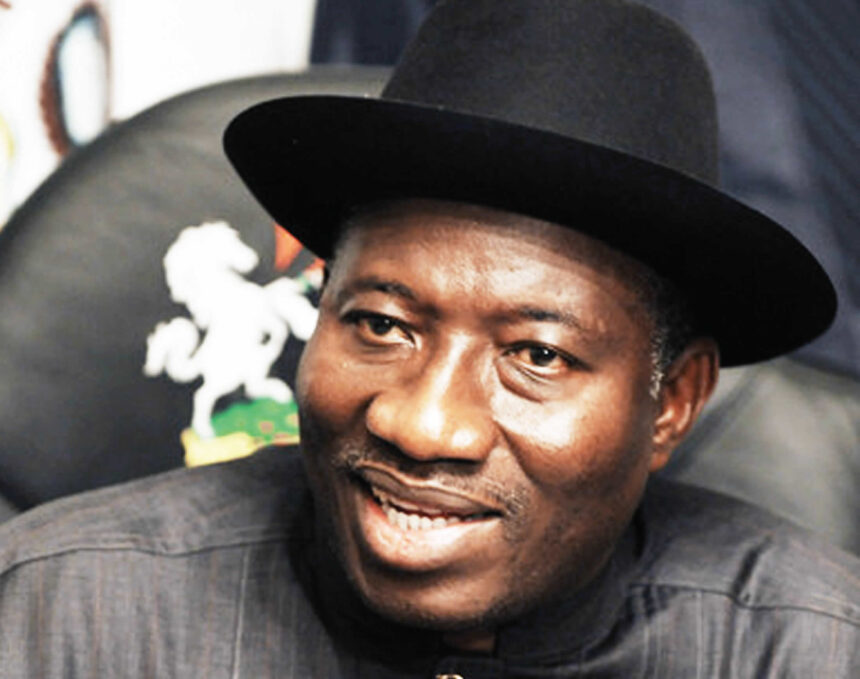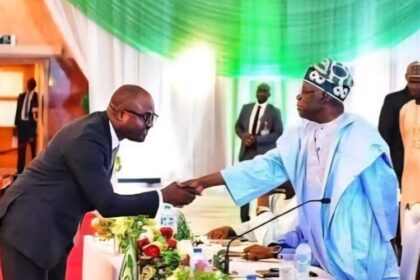The All Progressive Congress (APC), the ruling party in Nigeria, is currently grappling with a significant crisis as it strives to maintain power in the 2027 presidential election.
Several factors pose formidable challenges for President Bola Tinubu’s administration, as the political landscape becomes increasingly complex and precarious.
One of the key issues generating unease within the APC is the potential resurgence of former President Goodluck Jonathan. He appears to be garnering substantial support from various northern leaders, who are advocating for his return to the People’s Democratic Party (PDP) as the favored candidate for the presidential nomination.


Jonathan’s signals suggest a readiness to heed the calls from influential political stakeholders in the northern region, adding layers to the already turbulent political climate.
Recently, Jonathan had a private, closed-door meeting with former Military Head of State, General Ibrahim Badamasi Babangida (commonly known as IBB), at Babangida’s residence in Minna, Niger State.
The meeting, lasting over 45 minutes, was shrouded in secrecy and, while the public agenda focused on broader political themes, inside sources indicated that their discussions were specifically aimed at strategizing for the forthcoming 2027 general election.
Adding to this political narrative, former Jigawa State Governor Sule Lamido publicly endorsed Jonathan, labeling him as the PDP’s strongest contender for the presidential election.
Lamido urged party leaders to work diligently to facilitate Jonathan’s return, showcasing the growing anxiety within the APC, particularly among party members from the South-South and South-East regions.
Simultaneously, the ongoing power struggles within the coalition of the African Democratic Congress (ADC), primarily between Peter Obi and Atiku Abubakar, have further muddled the political waters.
Current observations suggest that Obi, the former governor of Anambra State, is likely to be at a disadvantage in the 2027 presidential race, particularly with Jonathan’s potential candidacy from the South. Despite being a Southerner himself, Obi lacks the political clout and widespread support needed to mount an effective independent campaign.
Many governors are hesitant to align themselves with him, especially after his controversial declaration to run for just four years—a statement interpreted by some as deceptive and insincere.
As for the dynamics of voting behavior, the presence of Jonathan as a candidate could heavily influence the election outcomes. Recent surveys suggest that over 56% of Southern voters are inclined to support Jonathan’s return to the Aso Rock presidential residence, primarily due to the ongoing economic hardships. This sentiment could propel a staggering 70% of Southerners to back Jonathan against Tinubu in the 2027 election.
In terms of regional breakdowns, Tinubu is expected to secure a significant portion of votes from the Southwest—around 70%—due to regional loyalty and other compelling factors.
However, Jonathan might also capture about 35% of the votes from the Southwest, while the ADC coalition, led by Atiku, could further slice the voting pie in states like Ogun, Osun, and Lagos, thanks to Rauf Aregbesola’s behind-the-scenes efforts.
In the South-South region, if the PDP concentrates on ground-level campaigning, Jonathan is likely to gain substantial support.
Additionally, some states in the South East may follow suit. Looking at the northern states, Atiku seems poised to dominate the votes there by 75% as ADC flagbearer.
Conversely, it appears that northern voters are unlikely to support Peter Obi, rendering his candidacy increasingly irrelevant for the 2027 election. On the other hand, Atiku’s prospects hinge on the APC’s ability to maintain its strategic grip; even a slight lapse could grant him the opportunity to emerge as a strong contender once again.




